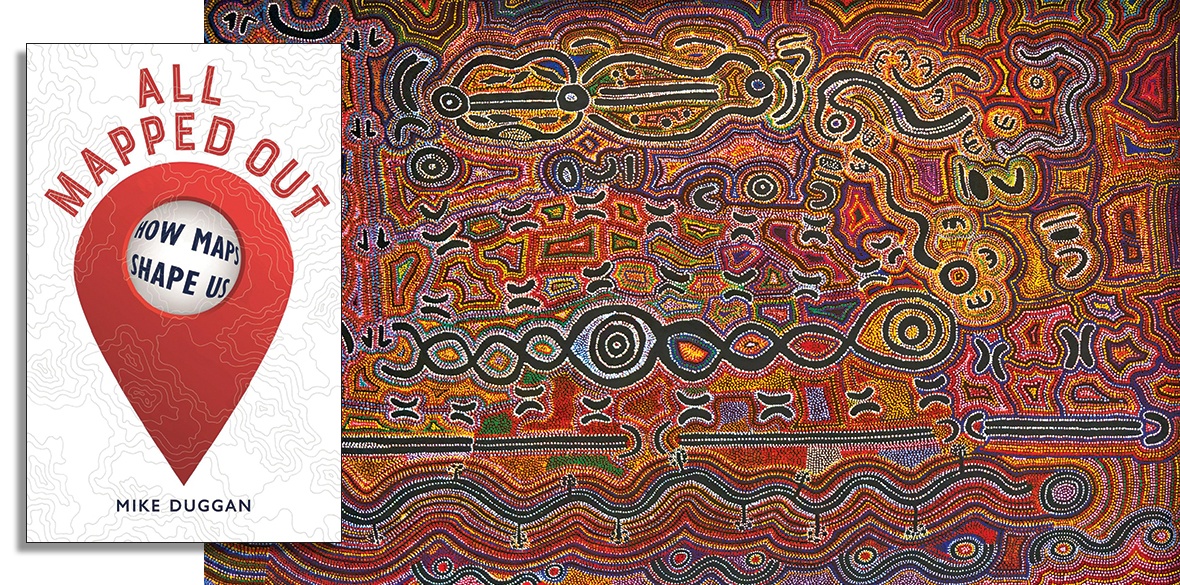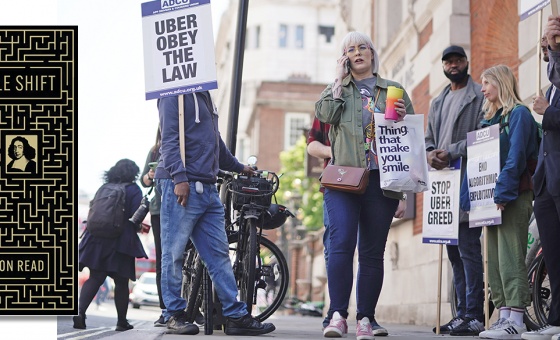This is the last article you can read this month
You can read more article this month
You can read more articles this month
Sorry your limit is up for this month
Reset on:
Please help support the Morning Star by subscribing here
All Mapped Out
Mike Duggan, Reaktion Books, £16
WHAT are maps? Who uses them and for what purposes? For anyone who feels these questions are too simplistic to engage with, then reading Mike Duggan’s exhaustive deconstruction of the concept of mapping will never look at a map in the same way again.
He points out that most people take for granted what a map is, whereas in non-Western and indigenous mapping cultures, cartography, as those in the West know it, is not the be all and end all of spatial representation.
For example: ”First Nations peoples of Australia have traditions of using song and ceremony to map and keep alive their history with the landscape. Song maps (sometimes named song lines, dreaming tracks or strings) show that not all geographical maps are two-dimensional or geographical. They can be local, deeply embedded in cultural life.”
Our modern concept of the map is dominated by the readily available use and development of satnav digital technology providing a ”God’s eye” view of our world. By surrendering to this, Duggan maintains that we have lost the ancient skills of using our environment-geographical knowledge of the sun, stars, winds, currents, swells, depths, rocks, corals, birds etc.
We no longer find our way “with the earth” but rather aspire to become masters of it and, in the process, lose understanding of the importance of history and culture in our reading of our location to others.
Maps of all kinds, moreover, are not passive instruments but can and do actively tell stories and influence people socially, economically, culturally and politically. This is the same whether planning our journey by road or London Underground, checking the recent geographical spread of the Covid pandemic, or surveying the expected state voting results of US states likely to decide the next president.
In Donald Trump’s last outing, the Twitter map represented Democrat LA County in California with a population of nearly 10 million by a sliver of blue, while the central Kansas State with under three million was a sea of Republican red. This allowed him to claim the pictorial support of the US people irrespective of the statistical facts of population.
By examining the complex ways in which maps shape our lives, from the politics they create to the emotional responses they evoke, Duggan’s book proceeds to demonstrate that maps deal not only with the cartographic features of our world but ”play an important role in who we are, where we’ve come from and where we’re going.”
In the navigation section, he explores the different ways in which, for instance, the taxi driver, the holiday-maker, the rally driver and the walker use maps.
As a city-break tourist, we increasingly use our smart phone GPS facility to replace more conventional maps. In doing so, rather than orientating ourselves around the city, the city orientates itself around us.
Economically, the mapping platforms, notably “the most powerful maps of our day,” Google Maps, are dominated by the markets, returning ”place searches with a view built around the interests of Western advertising and marketing giants.”
Even digital maps such as those designed to show safe areas for women or in the US, racial areas, serve to socially engineer our environment. Similarly using universally available GPS technology, employers “in the logistics industry are able to say with a high degree of accuracy where their drivers and vehicles are and determine where they should be next. This is workplace surveillance as we’ve never seen it before.”
Modern technological designed maps can reveal all we need to know about how to save our endangered world ”but the question remains whether in doing so leads to real change in how we tackle these important problems or whether our actions simply turn the earth into data points.”
The chapter on the power of maps in politics is particularly relevant today as we watch how the ongoing crises in Ukraine and Gaza ”map out.” We must remember that maps include and exclude what the map makers choose we should know. They embody power over the powerless.
Duggan leaves the reader with no doubt that, however necessary and useful, maps are “arguments made about the world” essentially lending “legitimacy to the prevailing world view that land exists to become modified in order to support this [capitalist] economic system.”











